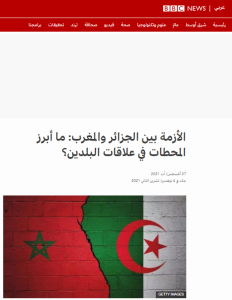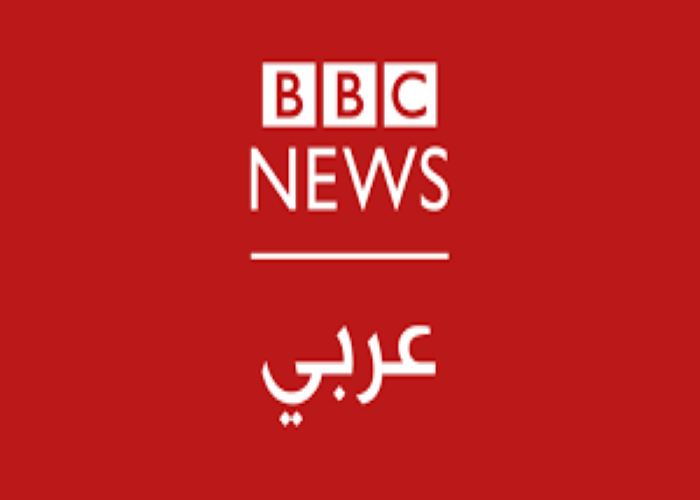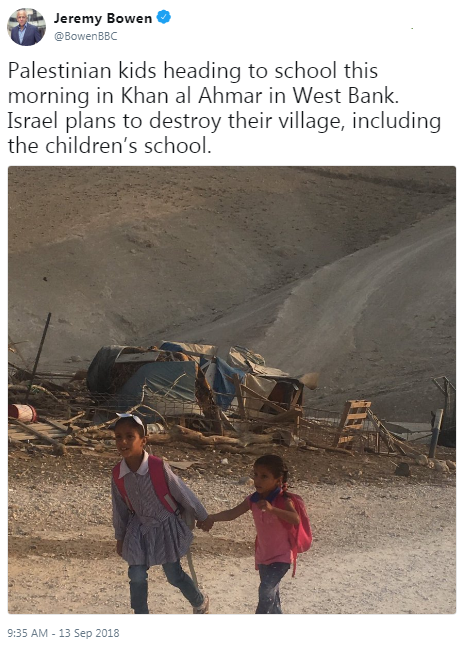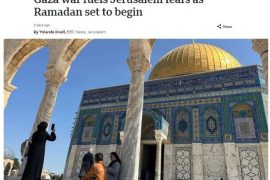CAMERA Arabic recently looked into the way Arabic-language Western media outlets present the story of Algeria’s deportation of tens of thousands of Moroccan nationals in the winter of 1975-6, forcing them to surrender their property and exit the country, typically within days. Moroccan estimates put the number of people expelled at up to 350 thousand individuals while foreign observers agree that at least tens of thousands of Moroccan families were forced to leave following the Algerian government’s decision.
The mass expulsion, which started at Eid al-Adha of that year, was broadly seen as Algerian retribution for Morocco’s Green March on Western Sahara a month before and is commemorated in Morocco every December.
That event was not included in a BBC Arabic backgrounder supposedly explaining the relations between Morocco and Algeria throughout modern history.
First published on August 27th 2021 and last updated on November 4th, the original version of that backgrounder featured the following timeline of mid-1970s events:
“1975: Spain withdraws from Western Sahara and a turf war erupts between the Polisario Front and Moroccan forces, lasting 16 years. Moroccan monarch King Hasan II rejects the Hague’s ICJ decision concerning the Sahrawi people’s right to self-determination and orchestrates what became known as ‘the Green March’, where he called 350,000 Moroccans to get out and overtake Western Sahara.
“1975-1976: Morocco annexes two thirds of Western Sahara after Spanish withdrawal. The Polisario Front announces the establishment of the Saharan Arab Republic, with a government in Algeria exile. Thousands of Sahrawi refugees flee for west Algeria to build camps near the town of Tindouf.
“March 1976: Relations between Morocco and Algeria are cut, against the backdrop of the latter’s support of the Polisario Front.”
(all translations, emphases and in bracket remarks by CAMERA Arabic)
In a complaint submitted to the BBC we pointed out that:
- The timeline completely overlooked the mass expulsion, which was a crucial event in the history of Moroccan-Algerian relations, not only as backdrop to the two countries severing ties in March 1976, but also in shaping the dynamics between them to this day.
- The ICJ did not issue a “decision” on Western Sahara but an advisory opinion.
BBC Arabic editors reviewed the entry and corrected the two issues we raised. The timeline now reads:
“October 1974: Morocco refers the Western Sahara case to the ICJ, which issues a non-binding advisory opinion, viewed by Rabat as supporting the existence of ‘historical connections’ between it and the tribes populating the territory
“November 1975: Hasan II orchestrates what became known as ‘the Green March’, where he called 350,000 Moroccans to walk over to Western Sahara. Spain withdraws from Western Sahara and a turf war erupts between the Polisario Front and Moroccan forces, lasting 16 years.
“December 1975: With a month passing from the Green March, Algeria deports thousands of Moroccans residing there. It affirms that this operation came as a response to Morocco not compensating its Algerian residents after having nationalized property and farmlands belonging to foreign individuals and bodies.
“1975-1976: Morocco annexes two thirds of Western Sahara after Spanish withdrawal. The Polisario Front announces the establishment of the Saharan Arab Republic, with a government in Algeria exile. Thousands of Sahrawi refugees flee for west Algeria to build camps near the town of Tindouf.
“March 1976: Relations between Morocco and Algeria are cut, against the backdrop of the latter’s support of the Polisario Front.”
We thank readers for bringing this matter to our attention.
Related Articles:
“بي بي سي عربي” تعترف أخيراً بمأساة المغاربة الذين طردهم النظام الجزائري عام 1975






This is no different to the largely undocumented history of the thousands of Jewish families that escaped from Morocco to avoid persecution and changes to business laws which deprived them of their land property and livelihoods, also forgotten by the BBC history books. Their website also manages to lose the facts behind the 1920 San Remo agreement, the essence of which the justification of the Jewish claim to the whole of Israel, not the 23% they have been left with. #defundthebbc